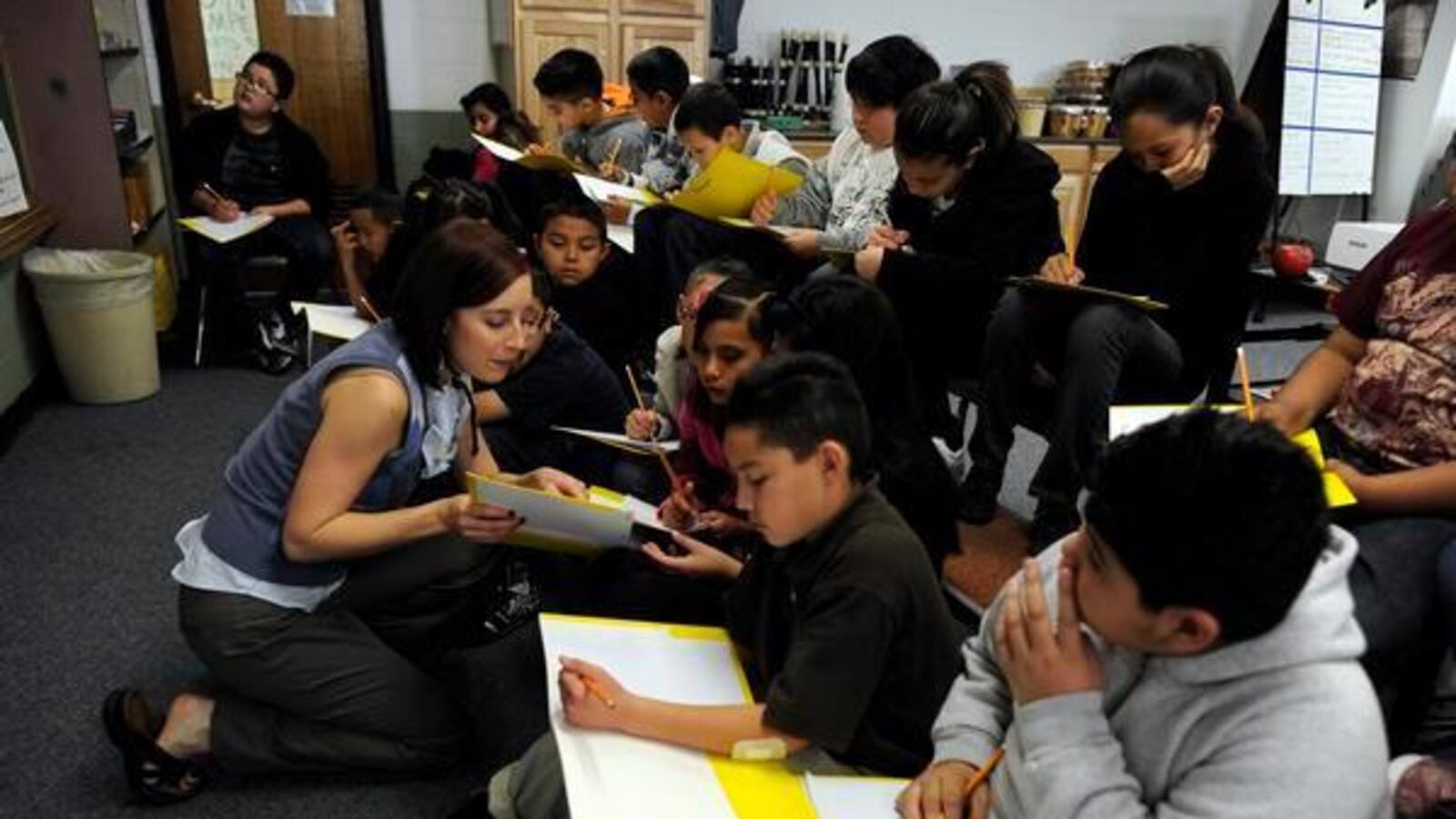Wary of repeating past mistakes, Colorado education department officials have spent the last year and $650,000 in federal tax money helping a group of struggling schools that face state-ordered changes turn things around.
The State Board of Education on Thursday will begin a months-long process of determining what changes a dozen schools and five school districts should make to boost student learning.
The department, wanting to avoid a breakdown between schools and the state board, created a grant program that provided money and training to schools to create their own improvement plans. Department officials hope the schools will create high-quality plans and that the board will approve them instead of imposing changes on districts.
“The philosophy we’ve had as a department is that districts that help choose their own path will have the highest chance of success,” said Brenda Bautsch Dickhoner, an accountability coordinator for the education department.
Under state law, the state board can direct school districts to close schools or turn them over to charter operators, among other options. The board must consult with the department and a third-party review committee that visited each school on the accountability watch list.
But the final decision rests with the seven-member State Board of Education.
Eleven schools districts — including Montezuma-Cortez, the first school district the state board will meet with Thursday — participated in the grant program.
The 2,800-student district in southwest Colorado used some of the $101,628 it received to travel to Denver to meet with department officials to chart a course for the district. The money also paid for travel to tour high-performing schools.
But the majority of money is going to hiring a third party to help improve the school district — one of options under the state’s accountability law.
The plan, which the district will present to the board on Thursday, calls for the district to enroll in a three-year school improvement program offered by the University of Virginia.
The Cortez district — as well as several others in the state — have worked with the university before. Part of the university’s training teaches schools how to focus on smaller, targeted 90-day goals to increase student learning.
District officials say the training has shown positive results in two of the district’s elementary schools, and the hope is to expand the training to the middle and high school.
Part of the program includes routine visits from university staff and regular updates on progress that will be submitted to the Cortez school board and state board, said Lori Haukeness, Montezuma-Cortez’s superintendent.
“We’re continuing work that we know is proven nationally and is already seeing results in our districts,” she said.
The grant program helped another school district choose a similar pathway — even as it had spent a year working toward another.
Officials at the Adams 14 School District in Commerce City were strongly considering asking the state for innovation status, which would give their schools waivers from some district policy and state law.
But after using the $97,000 to hire a consultant to help them write their plan, the district officials decided to change course.
“When we started working with CDE, we tried to focus on what we really need,” said the district’s new superintendent, Javier Abrego. “Our need was a rigorous curriculum, we needed assessments, and we needed consistency throughout our schools.”
That led school districts students officials to change course and seek additional outside help with curriculum development and new tests to monitor student learning.
They’ll be working with the Arizona-based firm Beyond Textbooks to develop curriculum guides for teachers that are aligned to the state’s academic standards and tests to ensure students are meeting them.
State board members have expressed a desire to work with school districts, not against them. But they’ve also pledged to not allow any school to skate by — and they’ve been especially critical of schools seeking innovation status.
“It’s very risky for the board to recommend a dramatic differently pathway than what’s presented to us — unless it’s just garbage,” said board chairwoman Angelika Schroeder, a Boulder Democrat. “We want success for kids. If we deeply believe what’s being proposed won’t be helpful, then we have to have a conversation.”
Haukeness, the Cortez school chief, said she sees Thursday’s meeting as a continuation of work her district has been doing for several years with the help of education department. Her district has participated in other education department-provided training.
“I can’t say CDE all of the sudden was there to support us during this pathway work, because CDE has worked closely with us during the last three years,” she said. “I’m just looking forward to presenting on Thursday and moving forward.”

